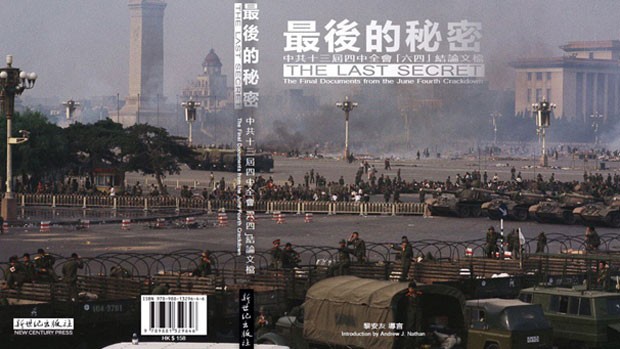
The 30th anniversary of the crackdown on the Tiananmen Square protests has brought the realization that a prosperous middle-class China will not necessarily turn against the ruling Communist party, as many outside observers had expected, The Financial Times reports.
“Young people born in this century, all they know is China’s economy taking off. They remember the 2008 Summer Olympics and the economic boom,” said Xiao Qiang, who studies the Chinese internet at University of California, Berkeley. By contrast, his generation, born in the stagnant aftermath of the Cultural Revolution, “looked to the US as the gold standard that we hoped to eventually reach”.
 “Now young people don’t necessarily see America or Europe as the way to go,” said Xiao, founder and editor-in-chief China Digital Times. “They see China has its own way, it will get there by itself and it even has its own advantages.”
“Now young people don’t necessarily see America or Europe as the way to go,” said Xiao, founder and editor-in-chief China Digital Times. “They see China has its own way, it will get there by itself and it even has its own advantages.”
Newly leaked documents “shed light on what happened after the crackdown, making clear the lessons party leaders drew from the Tiananmen crisis,” Columbia University’s Professor Andrew Nathan writes in Foreign Affairs:
- first, that the Chinese Communist Party is under permanent siege from enemies at home colluding with enemies abroad;
- second, that economic reform must take a back seat to ideological discipline and social control; and
- third, that the party will fall to its enemies if it allows itself to be internally divided.
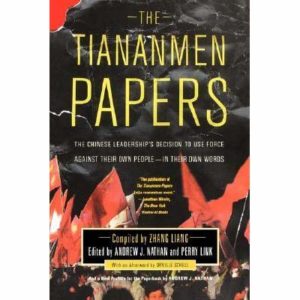 The collection of speeches, titled The Last Secret: The Final Documents From the June Fourth Crackdown (above) “offer a remarkable behind-the-scenes look at authoritarian political culture in action—and a sign of what was to come in China as, in later decades, the party resorted to ever more sophisticated and intrusive forms of control to combat the forces of liberalization,” adds Nathan, author of The Tiananmen Papers.
The collection of speeches, titled The Last Secret: The Final Documents From the June Fourth Crackdown (above) “offer a remarkable behind-the-scenes look at authoritarian political culture in action—and a sign of what was to come in China as, in later decades, the party resorted to ever more sophisticated and intrusive forms of control to combat the forces of liberalization,” adds Nathan, author of The Tiananmen Papers.
With Beijing intensifying its crackdown on civil society, China’s democracy movement faces new challenges, Deutsche Welle reports.
With China’s rapid economic expansion in recent years, experts believe that the overseas pro-democracy movement faces tougher days ahead. Shao Jiang, a Tiananmen student activist who is now a visiting fellow at University of Westminster’s Center for the Study of Democracy, told DW that in order to stay relevant, China’s pro-democracy activists need to align themselves with global campaigns against China’s totalitarian expansion.
“Since pro-democracy activists have limited influence over Western leaders, they need to merge their movement into global alliances against China’s aggressive expansion,” Shao argued.
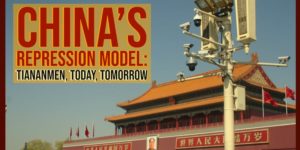 What emerged intact from the massacre of defenseless students and other citizens was not communism, but a version of authoritarian capitalism on a grand scale, notes Ian Buruma. It is a model that appeals to autocrats all over the world, including in countries that succeeded in throwing off communist rule 30 years ago, he writes for Project Syndicate.
What emerged intact from the massacre of defenseless students and other citizens was not communism, but a version of authoritarian capitalism on a grand scale, notes Ian Buruma. It is a model that appeals to autocrats all over the world, including in countries that succeeded in throwing off communist rule 30 years ago, he writes for Project Syndicate.
“China was not an outlier in 1989 at all,” he contends. “Illiberal capitalism has since emerged as an attractive model to autocrats all over the world, including in countries that succeeded in throwing off communist rule 30 years ago. The Chinese just got there first.”
Though it buys acquiescence abroad through its economic clout and enforces relative silence at home, China’s leadership is hardly comfortable. That, too, is a legacy of Tiananmen Square, the Post’s Ishaan Tharoor adds.
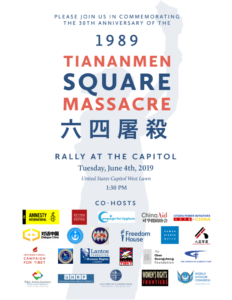 “For authoritarian regimes like China’s, history is power, because their political systems are legitimized through myths,” argued Ian Johnson, a Pulitzer Prize-winning journalist based in Beijing. “The problem for the government is that historical truth is hard to suppress. The authoritarian state can prevent it from becoming an immediate threat and can eliminate it from the lives of most citizens, but the truth stubbornly endures.”
“For authoritarian regimes like China’s, history is power, because their political systems are legitimized through myths,” argued Ian Johnson, a Pulitzer Prize-winning journalist based in Beijing. “The problem for the government is that historical truth is hard to suppress. The authoritarian state can prevent it from becoming an immediate threat and can eliminate it from the lives of most citizens, but the truth stubbornly endures.”
Japan “has a responsibility” to promote democracy in China, said democracy advocate Wang Dan, but he noted that this might not be “realistic” for Tokyo, The Japan Times reports:
Still, he pointed to the promotion of activities similar to that of the United States’ National Endowment for Democracy, a nonprofit organization funded and overseen by Congress and founded with the stated goal of promoting democracy abroad, which he said has been “very helpful for civil society’s growth.”
“Why doesn’t the Japan government do this?” Wang asked. “Even Taiwan has this kind of foundation to support (the) development of civil society. Japan can do this. I don’t understand why they do not want to do this.”
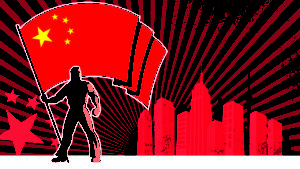
FPRI
Wang, one of the Tiananmen protesters and founder of Dialogue China, a Washington-based think tank, told DW that over the years the overseas pro-democracy movement has documented China’s human rights violations and shared it with the international community.
“Since most of the Tiananmen student activists don’t live in China anymore, they can’t really be the leaders of the pro-democracy movement in the country. They have to lend support to local movements instead,” Wang said.
The world’s democracies must move beyond their myopic competition for China’s favor and come together to resist its alternative authoritarian vision, according to Christophe Deloire, Secretary-General of Reporters Without Borders, aka Reporters sans frontières (RSF), and Wu’er Kaixi, a member of the Reporters Without Borders (RSF) Emeritus Board, and a leader of the Tiananmen Square protest in 1989:
Such concerted resistance would honor those who have paid the ultimate price for defending freedom of information in China, such as Nobel Peace Prize laureate Liu Xiaobo, whom the Chinese government left to die in detention. It would also honor the more than 100 journalists detained today in life-threatening conditions, including RSF award-winner Huang Qi and the photographer Lu Guang, who received numerous prizes for his work on social and environmental issues in China.
“Sometimes remembrance is one of the most humble forms of resistance,” said Kaixi.
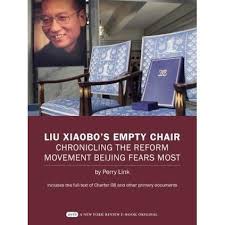 His comments find an echo in the words of Perry Link, author of Liu Xiaobo’s Empty Chair: Chronicling the Reform Movement Beijing Fears Most. His work uncovering the truth about Tiananmen earned him a permanent ban from traveling to China. He insists that the work of memory must go on, The Asia Society adds.
His comments find an echo in the words of Perry Link, author of Liu Xiaobo’s Empty Chair: Chronicling the Reform Movement Beijing Fears Most. His work uncovering the truth about Tiananmen earned him a permanent ban from traveling to China. He insists that the work of memory must go on, The Asia Society adds.
“We remember June Fourth because shocks to the human brain last a long time,” he wrote in ChinaFile. “We would not be able to forget even if we tried.”
Xi may think he has triumphed by burying history, stifling Hong Kong, suppressing religion, strangling the internet, imprisoning lawyers and journalists, and erasing the truth of what I saw three decades ago, Nicholas Kristof writes for The NY Times. But Chinese scholars often quote the writer Lu Xun after an earlier massacre: “Lies written in ink cannot disguise facts written in blood.”
On July 10 and 11, leading defenders of press freedom from around the world will meet at the Global Conference for Media Freedom in London, Deloire and Kaixi add. “They must take this opportunity not just to reaffirm core principles, but also to rally together to build barriers to China’s media influence, and to end impunity for press-freedom violations.”
WEDNESDAY | JUNE 5
 10:15 a.m. 419 Dirksen, U.S. Senate, Capitol Hill. Senate Foreign Relations Committee hearing on “Rule By Fear: 30 Years After Tiananmen Square.” Witnesses: Xiao Qiang, China Digital Times; Sophie Richardson, Human Rights Watch; Christopher Walker, vice president for studies and analysis, National Endowment for Democracy.
10:15 a.m. 419 Dirksen, U.S. Senate, Capitol Hill. Senate Foreign Relations Committee hearing on “Rule By Fear: 30 Years After Tiananmen Square.” Witnesses: Xiao Qiang, China Digital Times; Sophie Richardson, Human Rights Watch; Christopher Walker, vice president for studies and analysis, National Endowment for Democracy.
The Legacy of Tiananmen Square at 30
On the 30th anniversary of the protests and the crackdown, what is the legacy of Tiananmen Square, and how has it shaped modern China? Hoover asks. How did the Communist Party maintain its grip on power, even while losing legitimacy in the eyes of many at home and abroad? Why has there been no follow-on democracy movement in China over the succeeding third of a century? In an era of populism and nationalism around the world, are there any prospects for a Chinese pluralism that embraces democracy?
Hoover fellow Michael Auslin will discuss the legacy of Tiananmen Square with famed Chinese democracy activist and former political prisoner Wei Jingsheng, Claremont McKenna College Professor Minxin Pei, and Victims of Communism Memorial Foundation Executive Director Marion Smith.
June 6, 2019 12:00-1:15 PM Hoover Institution, 1399 New York Ave NW, Suite 500, Washington, DC 20005







